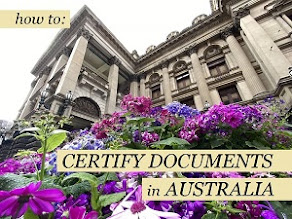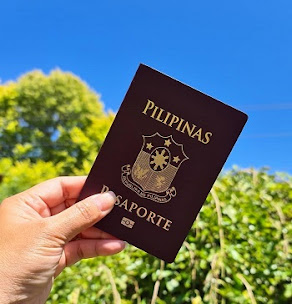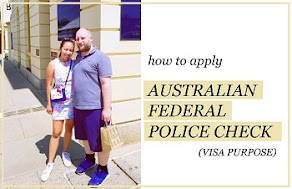If there’s one person who has had a great 2013, it’s Kevin Kwan, the author of Crazy Rich Asians. His debut novel about the lavish lifestyles of Singapore’s affluent not only shot up the best-seller list this summer, but it also scored a movie deal with Hunger Games producer Color Force.
The story revolves around the extravagant wealth and often diabolical scheming among three Chinese families in Singapore, which happens to have the world’s highest concentration of millionaires. Kwan’s detailed descriptions of his characters’ ultra-luxe preferences come from his own experience growing up in Singapore as its economy took off, as well as his professional experience as a creative consultant in the design and luxury markets.
We reached out to Kwan via email to discuss how the film is coming along, his views on friction between new and old money in Asia, and the habits of Asia’s younger wealthy generation.
The story revolves around the extravagant wealth and often diabolical scheming among three Chinese families in Singapore, which happens to have the world’s highest concentration of millionaires. Kwan’s detailed descriptions of his characters’ ultra-luxe preferences come from his own experience growing up in Singapore as its economy took off, as well as his professional experience as a creative consultant in the design and luxury markets.
We reached out to Kwan via email to discuss how the film is coming along, his views on friction between new and old money in Asia, and the habits of Asia’s younger wealthy generation.
Congratulations on receiving a film deal for your first book! How is the process coming along and when can we expect to see it on the big screen?
Thank you! Things are going great and we are well into the process of transforming the book into a film. Between producers Color Force—who were responsible for the Hunger Games movies—and Ivanhoe Pictures, which is financing the film, I couldn’t have wished for a more experienced and fantastic team. I can’t tell you exactly when the movie will debut on the big screen, but I think fans of the book will be pleased to know that we are moving at top speed to make this happen.
Any word of who is being cast in the starring roles yet? Which actors would you most like to see play your characters?
Casting hasn’t begun yet, but it will be very exciting when this happens. There are so many actors and actresses that I love, it would be unfair of me to single out anyone. There are such accomplished actors all over Asia, and since my book is set in Singapore, Hong Kong, and mainland China, I hope that the film can be a showcase for all this amazing talent.
How did your personal experience inspire you to write a book on Singapore’s wealthy?
I grew up in Singapore in the early 1980s, just as the country was blossoming into its prosperity. I also had friends and family in other parts of Asia and was lucky enough to travel frequently around the region—to Hong Kong, Malaysia, Thailand, China. So in many ways I was exposed to all these worlds from an early age. Most of the scenes in Crazy Rich Asians are set in places I know well—I went to the same schools, churches, and clubs written about in my novel.
The book reveals some pretty detailed knowledge of the types of luxury products preferred by the characters—did you have to do a great deal of research to find this out or was it based on your own knowledge?
No research was necessary—it was all based on my personal and professional knowledge. Before I devoted myself to writing this book, I was a creative consultant specializing in the design and luxury markets. For instance, I worked with Elizabeth Taylor to produce a book about her legendary jewelry collection, and I’ve collaborated with many acclaimed designers, architects and brands on various projects over the years.
The book features accounts of discrimination of Westerners against the wealthy Singaporean main characters, and likewise, discrimination of the wealthy Singaporean characters against those from mainland China. How prevalent are these attitudes and do you see them being eradicated any time soon?
Discrimination exists in every culture, but I do think things are getting better. There has always been friction between the old money and new money crowd. In Europe during the early decades of the 20th century, the millionaire Americans were seen as uncivilized barbarians by the European aristocracy. In the United States in the 1980s, there was some hysteria about the rich Japanese buying up America. Nowadays with Asian fortunes on the rise, there’s bound to be some backlash. I remember experiencing discrimination for the first time in my life during a visit to Paris many years ago. My family was turned away from a very posh restaurant, and as we were all appropriately dressed, I couldn’t think of any other reason for this to happen other than the color of our skin. I was so shocked when it happened, since we lived in the United States and had never experienced anything like this there. But as more and more Asians travel and the world continues to transform itself into one big global village, I think there’s been an increase in cultural understanding. Certainly, European luxury brands have for some years now been rolling out the red carpet for the Asian consumer, and I think this will only continue.
What do think are some of the differences between Singapore’s wealthy Chinese families and those of mainland China?
Many of the wealthy families in Singapore acquired their fortunes a few decades earlier than the mainland Chinese, but aside from this, I don’t think it’s possible to pinpoint the differences. No matter where you are, every family is different, and each family has its own unique relationship to money and how they choose to express their wealth.
The book featured accounts of members of the younger wealthy generation focusing much less on ostentatious wealth and more on social responsibility. Do you think this is becoming widespread in real life, and how do you think Singapore compares to mainland China in this respect?
I’m not a sociologist, so I can’t answer this with any authority. But I do think we are seeing a greater number of philanthropists emerge from Asia in general. There is more charitable giving, Asians are becoming much more committed to preserving and promoting their cultural heritage, and the younger generation are taking more of an active interest in social responsibility. As the rich get richer, I think it’s important that they remember to spread the wealth! {excerpt from jingdaily}
Thank you! Things are going great and we are well into the process of transforming the book into a film. Between producers Color Force—who were responsible for the Hunger Games movies—and Ivanhoe Pictures, which is financing the film, I couldn’t have wished for a more experienced and fantastic team. I can’t tell you exactly when the movie will debut on the big screen, but I think fans of the book will be pleased to know that we are moving at top speed to make this happen.
Any word of who is being cast in the starring roles yet? Which actors would you most like to see play your characters?
Casting hasn’t begun yet, but it will be very exciting when this happens. There are so many actors and actresses that I love, it would be unfair of me to single out anyone. There are such accomplished actors all over Asia, and since my book is set in Singapore, Hong Kong, and mainland China, I hope that the film can be a showcase for all this amazing talent.
How did your personal experience inspire you to write a book on Singapore’s wealthy?
I grew up in Singapore in the early 1980s, just as the country was blossoming into its prosperity. I also had friends and family in other parts of Asia and was lucky enough to travel frequently around the region—to Hong Kong, Malaysia, Thailand, China. So in many ways I was exposed to all these worlds from an early age. Most of the scenes in Crazy Rich Asians are set in places I know well—I went to the same schools, churches, and clubs written about in my novel.
The book reveals some pretty detailed knowledge of the types of luxury products preferred by the characters—did you have to do a great deal of research to find this out or was it based on your own knowledge?
No research was necessary—it was all based on my personal and professional knowledge. Before I devoted myself to writing this book, I was a creative consultant specializing in the design and luxury markets. For instance, I worked with Elizabeth Taylor to produce a book about her legendary jewelry collection, and I’ve collaborated with many acclaimed designers, architects and brands on various projects over the years.
The book features accounts of discrimination of Westerners against the wealthy Singaporean main characters, and likewise, discrimination of the wealthy Singaporean characters against those from mainland China. How prevalent are these attitudes and do you see them being eradicated any time soon?
Discrimination exists in every culture, but I do think things are getting better. There has always been friction between the old money and new money crowd. In Europe during the early decades of the 20th century, the millionaire Americans were seen as uncivilized barbarians by the European aristocracy. In the United States in the 1980s, there was some hysteria about the rich Japanese buying up America. Nowadays with Asian fortunes on the rise, there’s bound to be some backlash. I remember experiencing discrimination for the first time in my life during a visit to Paris many years ago. My family was turned away from a very posh restaurant, and as we were all appropriately dressed, I couldn’t think of any other reason for this to happen other than the color of our skin. I was so shocked when it happened, since we lived in the United States and had never experienced anything like this there. But as more and more Asians travel and the world continues to transform itself into one big global village, I think there’s been an increase in cultural understanding. Certainly, European luxury brands have for some years now been rolling out the red carpet for the Asian consumer, and I think this will only continue.
What do think are some of the differences between Singapore’s wealthy Chinese families and those of mainland China?
Many of the wealthy families in Singapore acquired their fortunes a few decades earlier than the mainland Chinese, but aside from this, I don’t think it’s possible to pinpoint the differences. No matter where you are, every family is different, and each family has its own unique relationship to money and how they choose to express their wealth.
The book featured accounts of members of the younger wealthy generation focusing much less on ostentatious wealth and more on social responsibility. Do you think this is becoming widespread in real life, and how do you think Singapore compares to mainland China in this respect?
I’m not a sociologist, so I can’t answer this with any authority. But I do think we are seeing a greater number of philanthropists emerge from Asia in general. There is more charitable giving, Asians are becoming much more committed to preserving and promoting their cultural heritage, and the younger generation are taking more of an active interest in social responsibility. As the rich get richer, I think it’s important that they remember to spread the wealth! {excerpt from jingdaily}



























Post a Comment